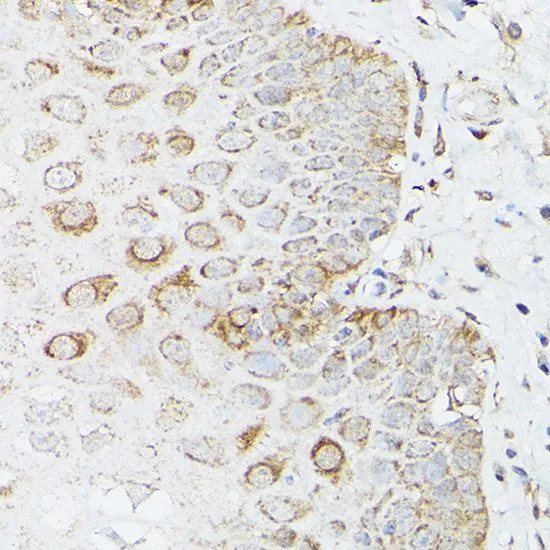
IHC-P analysis of human stomach tissue using GTX32627 Glutamine synthetase antibody. Dilution : 1:100
Glutamine synthetase antibody
GTX32627
ApplicationsImmunoFluorescence, Western Blot, ImmunoCytoChemistry, ImmunoHistoChemistry, ImmunoHistoChemistry Paraffin
Product group Antibodies
ReactivityHuman, Mouse
TargetGLUL
Overview
- SupplierGeneTex
- Product NameGlutamine synthetase antibody
- Delivery Days Customer9
- Application Supplier NoteWB: 1:500 - 1:2000. ICC/IF: 1:50 - 1:200. IHC-P: 1:50 - 1:200. *Optimal dilutions/concentrations should be determined by the researcher.Not tested in other applications.
- ApplicationsImmunoFluorescence, Western Blot, ImmunoCytoChemistry, ImmunoHistoChemistry, ImmunoHistoChemistry Paraffin
- CertificationResearch Use Only
- ClonalityPolyclonal
- ConjugateUnconjugated
- Gene ID2752
- Target nameGLUL
- Target descriptionglutamate-ammonia ligase
- Target synonymsDEE116, GLNS, GS, PIG43, PIG59, glutamine synthetase, cell proliferation-inducing protein 59, glutamate decarboxylase, glutamine synthase, palmitoyltransferase GLUL, proliferation-inducing protein 43
- HostRabbit
- IsotypeIgG
- Protein IDP15104
- Protein NameGlutamine synthetase
- Scientific DescriptionThe protein encoded by this gene belongs to the glutamine synthetase family. It catalyzes the synthesis of glutamine from glutamate and ammonia in an ATP-dependent reaction. This protein plays a role in ammonia and glutamate detoxification, acid-base homeostasis, cell signaling, and cell proliferation. Glutamine is an abundant amino acid, and is important to the biosynthesis of several amino acids, pyrimidines, and purines. Mutations in this gene are associated with congenital glutamine deficiency, and overexpression of this gene was observed in some primary liver cancer samples. There are six pseudogenes of this gene found on chromosomes 2, 5, 9, 11, and 12. Alternative splicing results in multiple transcript variants. [provided by RefSeq, Dec 2014]
- ReactivityHuman, Mouse
- Storage Instruction-20°C or -80°C,2°C to 8°C
- UNSPSC12352203

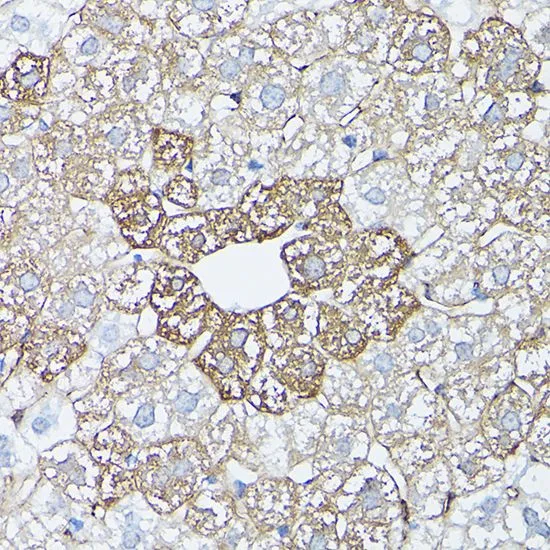
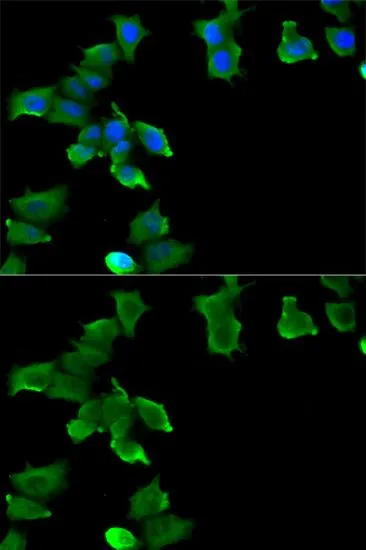
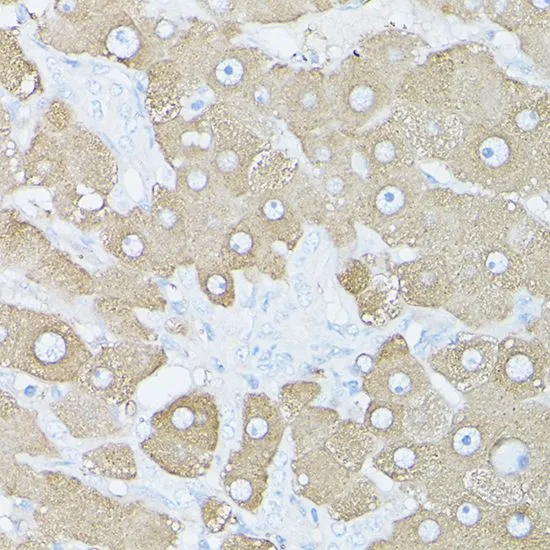
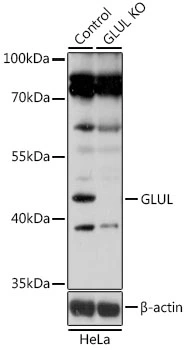
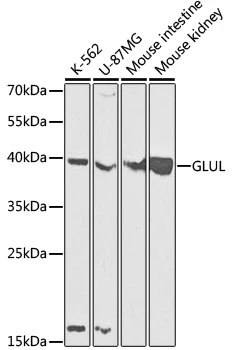



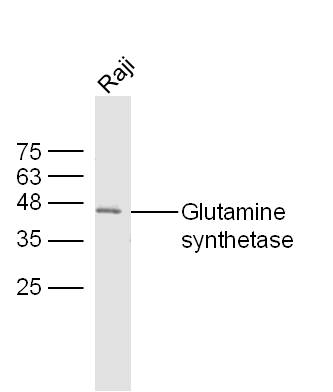


![IHC-P analysis of human liver tissue using GTX04471 Glutamine synthetase antibody [MSVA-750M] HistoMAX?. Glutamine synthetase staining is strong in centrilobular hepatocytes weak to moderate in Kupffer cells but absent in periportal hepatocytes.](https://www.genetex.com/upload/website/prouct_img/normal/GTX04471/GTX04471_20230728_IHC-P_57_23072722_662.webp)